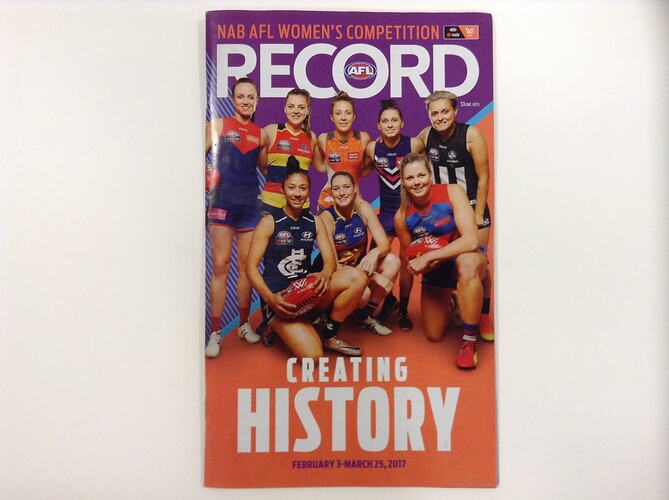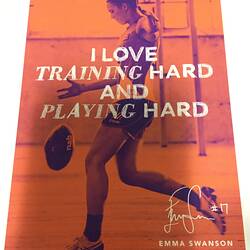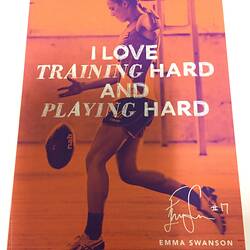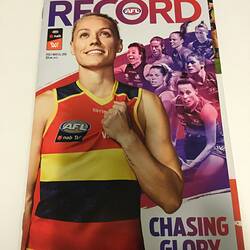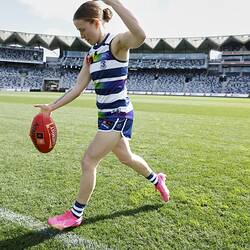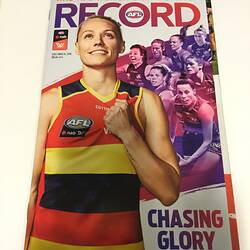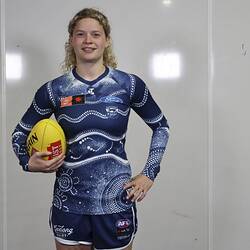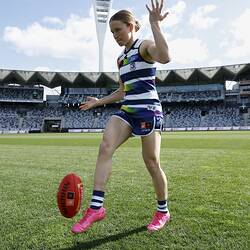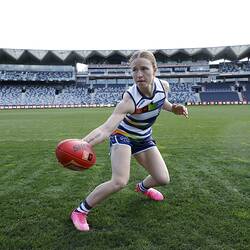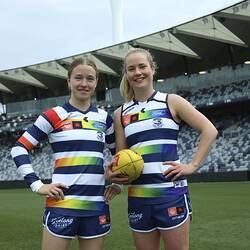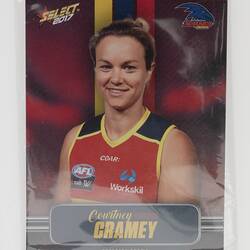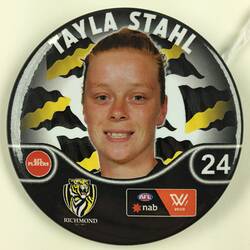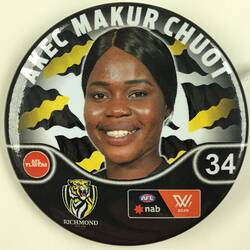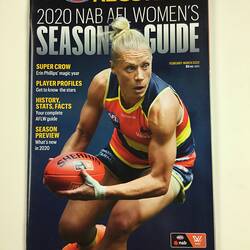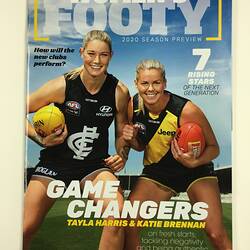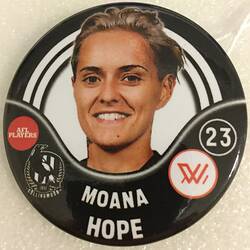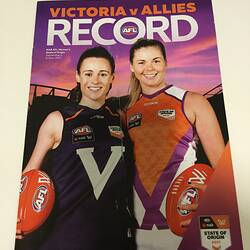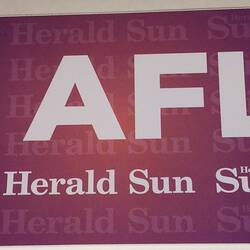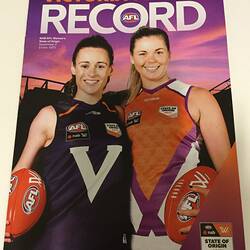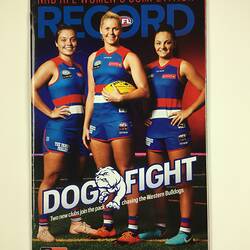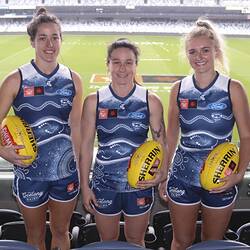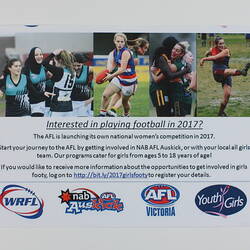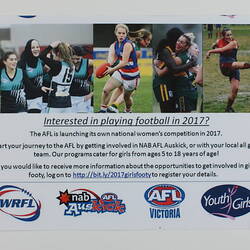Summary
The Museum's AFL Women's Competition Collection documents the evolution of the competition since its inauguration in 2017.
Introduction:
This collection documents the Australian Football League Women's competition, which was launched on 3 February 2017. This was an event of enormous historical significance - while women have been recorded as playing professional competition Australian Rules football since the early 20th century, and the AFL finally supported the introduction of two demonstration matches (Melbourne and Western Bulldogs) in 2015-16, the 2017 competition marked the first offically recognised and supported competition by the AFL.
The women's game is played with slightly amended rules to the men's game, including a slightly small ball, fewer players on the field, shorter quarters, throw-ins from inside the boundary line and a 'last-touch' out-of-bounds rule.
Evolution of the AFLW Competition:
The inaugural competition in 2017 involved eight teams from five states. Those teams were Collingwood Magpies, Carlton Blues, Western Bulldogs, Melbourne Demons, Adelaide Crows, Brisbane Lions, Greater Western Sydney Giants and Fremantle Dockers. Teams played each other once over seven rounds around Australia, culminating in a top of the table grand final match (won by the Adelaide Crows). A State of Origin match between Victoria and the Allies was also played on 2 September 2017.
Matches were televised and the first match between Collingwood and Carlton at Princes Park on 3 February 201 saw a crowd 'lockout' (24,500 people attended in the stadium), demonstrating the community interest in and support for a women's competition, as well as the historical import of the event. This huge public interest was underestimated by the AFL which saw it belatedly move the match from Olympic Park (7,000 crowd capacity) and AFL CEO Gillon McLachlin apologising to the thousands of fans locked out of the stadium.
The 2018 season again featured Collingwood versus Carlton as the season opener; the competition continued with the same eight teams and the competition premiers were the Western Bulldogs. In 2019, the competition expanded to ten teams with Geelong Cats and North Melbourne Kangaroos, then 14 teams in 2020 (West Coast Eagles, Richmond Tigers, Gold Coast Suns and St Kilda Saints) and the full 18 teams in 2022.
In 2019, Adelaide were premiers. The AFL introduced what became a controversial change to the competition match rounds, with a two simultaneous A and B conference system. This continued in the 2020 season.
In 2020, the Covid pandemic caused serious disruption to the season, with matches being played without crowds and the last two finals matches (involving Fremantle, North Melbourne, Carlton and Melbourne) abandoned due to safety concerns. Consequently there was no premiership team in 2020. In 2021, the AFL reverted to a single 14-team ladder with the finals a knock-out system; Brisbane were premiers.
In 2022, Hawthorn Hawks, Sydney Swans, Essendon Bombers and Port Adelaide Power joined the competition resulting in the full contingent of 18 AFL teams represented. Two seasons were played during this year, in January to April (won by Adelaide) and August to November (won for the first time by Melbourne), with the competition timing transitioning to later in the calendar year. The finals are played under the final-eight system in line with the men's format.
Women are still fighting for increased salaries and improved playing conditions in order for the competition to be a genuinely full time occupation option as it is with the men's competition. Salary concessions of 94% pay increases has enabled some women to make football a full time occupation during the playing season.
In 2023, the season commences in September, with 14 rounds including ten home and away matches and four finals. Some continue to argue for a competition which, like the men's AFL competition, has all teams playing each other at least once.
The women's AFL competition has been recognised for its culturally and socially inclusive culture, and its community connections, which see it played at suburban football grounds and attended by families and grassroots fans.
The Collection:
The Museum's AFLW collection is a work in progress, and includes: footy records (which ceased printed production for home and away seasons in 2022), flyers, buttons, posters, cards, a Western Bulldogs guernsey signed by the Western Bulldogs team in 2017, Pride and Indigenous Round guernseys worn by Richmond and Geelong Football Club (AFLW) players; and a fan banner, images and story of a regionally-based supporter and aspiring AFLW player.
More Information
-
Keywords
-
Authors
-
Article types
